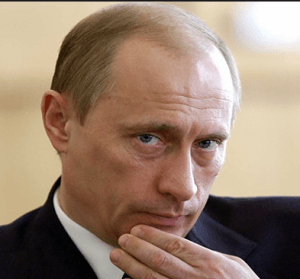Russia steps up business with Africa

Squeezed between United States and European Union (EU) sanctions, Russian authorities have sought to implement existing bilateral agreements to strengthen economic relations and military ties, as well as study the possibilities of entering new markets with export products in some African countries, according to the results that emerged from the annual executive meeting held by the Coordinating Committee for Economic Cooperation with African Countries (AfroCom).
Chairing and opening of the meeting, the First Deputy Chairman of Vnesheconombank, Petr Fradkov, noted the increasing role of AfroCom as a unique platform for discussing significant topical issues relating to Russian business and trade in Africa.
Fradkov further noted that the stable economic situation in many countries has presented good grounds and business prospects for potential Russian investors, adding that Russian companies that had currently demonstrated readiness would be supported to bolster actively their various investments in Sub-Saharan Africa.
Welcoming the participants, the Vice-President of the Russian Federation Chamber of Commerce and Industry, Georgi Petrov, noted that in view of the current geopolitical situation in the world and the economic situation in Russia, Russian businesses had to look for new markets.
In this regard, the African continent was of particular interest as it was one of the fastest growing regions in the world with an annual GDP growth of 5%. In addition, opportunities for projects in Africa are opened by the accession of South Africa into the BRICS group.
At the same time, Russia’s trade with Africa, south of the Sahara, is only $3.2 billion, while that of the EU was 340 billion euros, and China standing at more than $200 billion dollars, said Georgi Petrov,.
He recalled that the idea of creating AfroCom is to unite the efforts of Russian business in the African sector within the same structure. Given that, without government support, the non-oil exporting African countries is virtually impossible, hence the role of Vnesheconombank, the Russian Agency for Export Credit Insurance and Investment, and Russia’s Eximbank.
In her contribution, Elena Yatsenko, the Head of International Development Assistance (IDA), referred to in Russian as Rossotrudnichestva, said that since May 2013 the Rossotrudnichestva has been authorized to provide international development assistance on a bilateral basis. Today, Russia’s total aid to foreign countries is about $713 million.
She said that the United States and China have over $9 billion dollars, about 10% of which are in Africa.
Yatsenko stressed that Russia ranks eighth on Africa debt of $20 billion. In this regard, she urged the Russian business to actively participate in constructive programmes. An important aspect is to connect entrepreneurs to training for future projects in Africa, given the fact that the quotas for African countries to study in Russian universities increased to 5000 people.
The Director of the Department of Export Financing of the Vnesheconombank, Daniel Algulyan, informed that the interest of Russian business to the African market can be divided geographically into three sectors – Southern (South Africa, Namibia, Botswana, Mozambique and Zambia), Western (from Angola to Nigeria) and Northeastern (Ethiopia and neighboring countries).
Despite weak credit, there are small amounts of purchases and by African countries. Thanks largely to the existing lending instruments and subsidizing foreign buyers, as well as export guarantees this area has potential for further development, he explained at the meeting.
General Director of JSC “EXIAR”, Alex Tyupanov, shared his working experience in Africa, particularly in the implementation of projects in the field of energy and oil refinery in Mozambique and Rwanda. He spoke about the presence of JSC “EXIAR” cooperation agreements with similar structures of the BRICS countries, as well as the African Agency for Trade and Insurance (ATI) which reduces the risk of larger projects.
The Chairman of the Board of JSC “Eximbank”, Dmitry Golovanov, noted that the major challenges of working in the African sector should include the difficulty of Africans transacting operations with the Ruble (Russia’s currency) and banking cooperation by virtue of the anti-Russian sanctions, as well as competition from China and Japan, providing lower lending rates.
As one of the options to market the region, Dmitry Golovanov proposed to organize cooperation between Russian and African companies with the national institute of export support for the implementation of the supply to third countries. As a starting point for expansion into neighboring markets could be considered such as Angola, Nigeria and South Africa.
Similar ideas for promoting the interests of Russian business in Africa were shared by the representatives of the Institute of African Studies, JSC “Gazprombank”, JSC “VO” Tekhnopromexport and “JSC VTB Bank “.
According to the information obtained by the GNA from the Coordinating Committee for Economic Cooperation with African Countries (AfroCom) in the final part of the executive meeting, AfroCom’s organizational issues and economic activities, in particular, have been approved as plan of work until the end of 2015 and changes in the composition of the governing bodies.
In June 2009, the Coordinating Committee on Economic Cooperation with Sub-Saharan Africa, popularly referred to as AfroCom, was created on the initiative of the Russian Federation Chamber of Commerce and Industry and Vnesheconombank to help promote and facilitate Russian business in Africa. Since its creation, it has had full-fledged support from the Russian Government, the Federation Council and State Duma, the Ministry of Foreign Affairs and the African diplomatic community
Source: GNA
